Speak up for democracy
“Art shouldn't be too sophisticated for a political dialogue”: artists, cultural and media professionals spoke to us in Berlin about the responsibility of culture in critical times. Six voices.
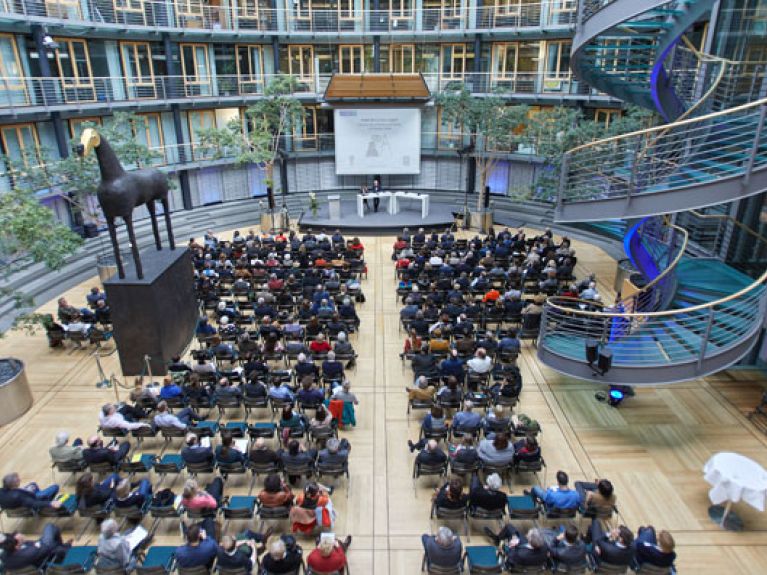
Around the world and across Europe populism and resentment is increasingly appearing in public and political discussions. Values we had previously considered assured such as tolerance, democracy and solidarity are now being called into question more and more. And democratically-elected governments now using “alternative facts” should serve as a wake-up call. However, it is not only politicians who should heed this warning – at a time when uncertainty and doubt are on the rise in Europe, people are asking to what extent artists and the creative industry should be standing up to the nationalist waves sowing the seeds of discord?
Open discussion needs practice
Artists, media professionals, authors and creatives in Berlin spoke to us about the “responsibility of culture in critical times”. The “no power to lies!” event was organised by the Allianz Cultural Foundation, the Offene Gesellschaft, a politically-independent civic initiative promoting political community, and Gesicht Zeigen!, an organisation promoting cultural awareness, as part of the Berlin Foundation Week in cooperation with the berlinergazette.de platform.
What was originally announced as a kind of fishbowl conversation, where members of the audience are able to swap places with any of the participants in the inner circle, eventually turned into a traditional panel discussion. Opening the discussion to everyone, as demonstrated in the conversations as well as the organisation of the event, still needs some practice. All the more significant is the warning issued by the Martin Roth, president-elect of the ifa, the Institute for Foreign Relations: “we have to get out of our comfort zone and ask ourselves how we can strengthen politics and support each other.”
Six voices speaking from the podium, six views on dialogue in critical times.
“Show them the limit of your tolerance”
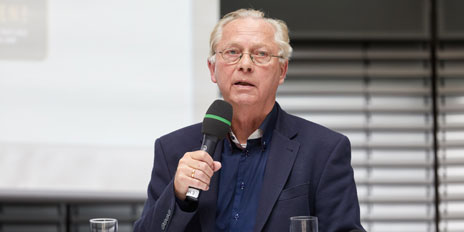
Uwe-Karsten Heye, Chairman of the Board of “Gesicht Zeigen!” and government spokesperson from 1998 to 2002
“An open society cannot be declared a “dictatorship of openness”. The digital echo chambers are increasingly equipping those who allegedly give information to people but, in fact, often do the opposite. We have to initiate a discussion about how we can stop these chambers becoming completely free of any rules. And everyone can and must show when your own tolerance limit has been reached, when it concerns isolation, xenophobia.”
“Art shouldn't be too sophisticated for a political dialogue”
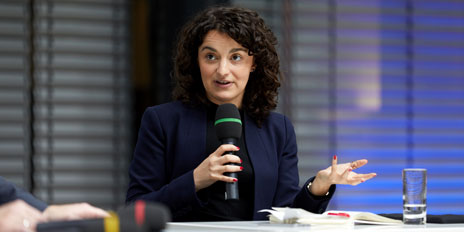
Esra Küçük, member of Maxim Gorki Theater's board of directors and director of the Gorki Forum programme
“In these times of counterfacts it's less about factuality but emotionality. We, as artists and cultural professionals, simply cannot stay out of this development. Ultimately, in countries governed by ultranationalists we are the first to be affected by repressive measures. Art is for me always political and art should never be too sophisticated for a political dialogue.”
“Motivate people to stand up for democracy”
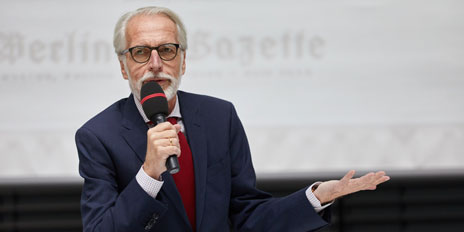
Martin Roth, former Director of the Victoria & Albert Museum in London and president-elect of the Institute for Foreign Relations in Stuttgart (ifa).
“The blunt propaganda has now achieved a level which we haven't experienced since the Second World War. I have the impression that we've already become accustomed to the lies of a Donald Trump and an organisation such as Pegida. We have to commit ourselves to doing something about what's happening outside our own backyard. It's not enough to focus our programmes on development and open up an exhibition on democracy in a few years. It will be too late by then. Instead of becoming tangled up in a vicious circle of never-ending complaining, we have to motivate as many people as possible to stand up for democracy and turn out and vote.”
“Yes Europe, yes democracy!”
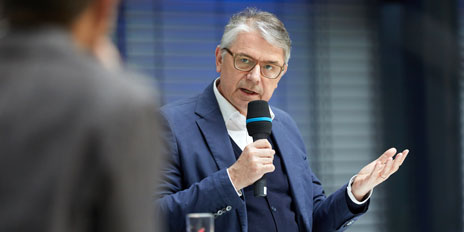
Ulrich Khuon, Artistic Director of the Deutsches Theater in Berlin and President of the Deutscher Bühnenverein, an organisation which represents theatres and orchestras.
“Everyday racism exists in many cities and communities. We have to create places in order to be able to talk to everyone and enable all citizens to participate. Conversations, quarrels, arguments with people who think differently – all of this has to also be tolerated by theatres and museums instead of withdrawing to their closed cultural circles. Above all, however, sometimes you have to shout: 'yes Europe, yes democracy!' Even though this might be hard for us because we always think discursively and critically.”
“Language and literature can achieve something”
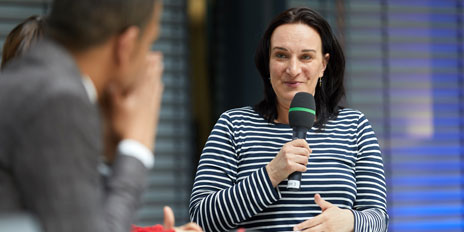
Terézia Mora, author, translator and script writer
“Of course I feel obligated as an author to depict a piece of the truth and use language against lies through my description of the world. As a native Hungarian I observed the demonstrations for the Central European University in Budapest which is now threatened with closure. The day of the protests, April 11 2017, is also the National Poetry Day in Hungary. A lot of demonstrators wrote poems or their own verses on placards. This shows that language, literature can achieve something.”
“We should be making more noise”
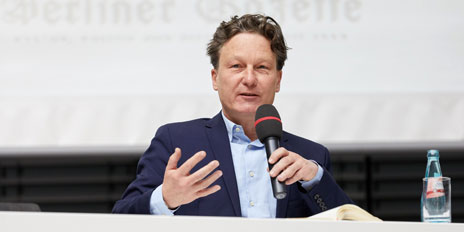
André Wilkens, Chairman of the “Offene Gesellschaft” and author of the book “Der diskrete Charme der Bürokratie: Gute Nachrichten aus Europa” (The Discreet Charm of Bureaucracy: Good News from Europe)
“Instead of surrendering the stage to the minority, which sows seeds of hatred and discord, we should, as supporters of democracy, be making more noise and making ourselves more visible. We have to sometimes also dare to be “for” something. Our society is not perfect, yes, but we can be proud of so many democratic achievements. We should celebrate them and head out onto the streets because of them.”

